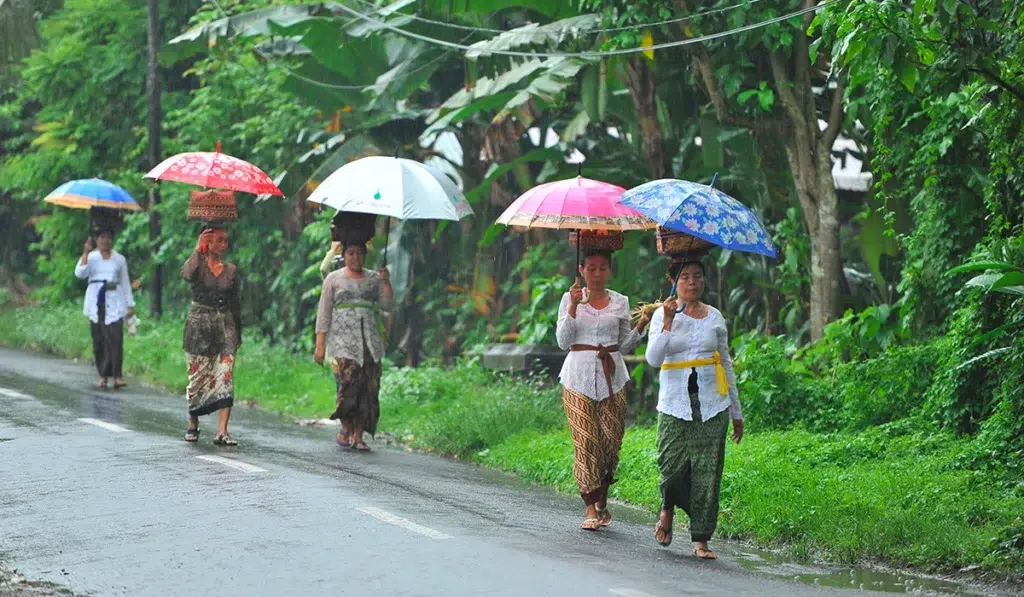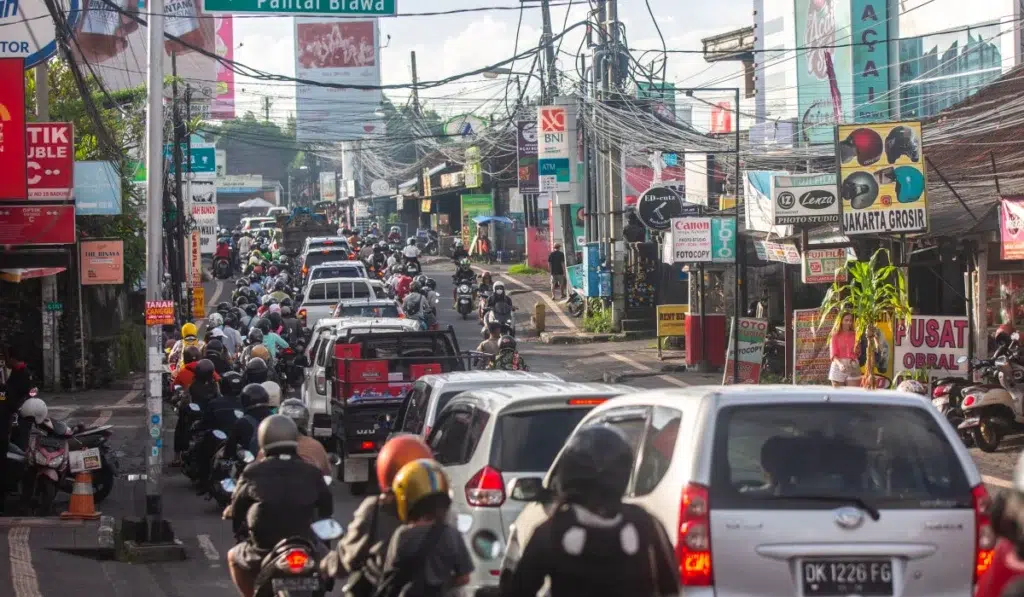Thailand VS Bali: The Battle For Digital Nomads
Welcome, nomads, to this week’s blog! Today I am going to give you my expert opinion on Thailand and Bali, exploring which one is better for digital nomads.
I’ll be honest with you I love both countries. They are both amazing digital nomad hotspots and they are both incredible to live, work and play while meeting lots of other nomads along the way.
I’m going to be breaking down exactly what the difference is between these two bucket list destinations, focusing on which ones might appeal to you more based on different factors. It’s such a close call, and it really comes down to your own personal preferences.
I’d say these countries are probably two of the biggest digital nomad hotspots across Asia and, of course, they are growing increasingly popular each year.
Well, let’s not waste any more time – let us crack on and jump into this comparative guide about Thailand or Bali!
Both Thailand & Bali Are Digital Nomad Hotspots
As I mentioned above, both Thailand and Bali are havens for digital nomads. In fact, according to Invest Islands, it is predicted that around 80,000 digital nomads will visit Bali on a monthly basis.
That’s pretty incredible, right?!
Not to be left out, Thailand actually ranks 2nd against the most popular digital nomad countries across the world, sitting just behind Mexico.
It’s safe to say, as a digital nomad you will have no problem meeting and networking with other nomads when it comes to both of these destinations. But, onto the important details, which one is going to suit your lifestyle best?

Thailand Has More Scenic Beaches
There is no doubt about it. Thailand has some of the most scenic beaches in the entire world. From the likes of Koh Phi Phi and Railay Beach all the way to the beautiful island of Koh Phangan.
If you’re a ‘work on the beach’ type of nomad, then Thailand is definitely going to be better suited for you than Bali.
However, in saying that, Bali does have some beautiful beaches especially up in Gili T and those smaller islands. It’s just because Bali is more open, the sea is slightly rougher. You will get bigger waves and more rubbish on the beaches.
Thailand beaches are quite clean and well-maintained in comparison to Bali, in my opinion. Most resorts that own the beaches will maintain and manage them whereas in Bali most of the beaches are bigger and more public.
Bali Has Better Surf Options
Don’t think I want to discredit Bali in any way, it definitely has its perks. For example, unlike the typically tranquil waters of Thailand, Bali has some amazing surf. From the beaches of Seminyak, Canggu and down in the south in Uluwatu you can get your surf on with some great waves.
Thailand unfortunately cannot offer this. So, if you are looking for action-packed weekends out in the surf, Bali will take your lead on this one.
For beginners, it’s super cheap to learn surfing and the Balinese are very kind and friendly as well as being excellent teachers.
You’ll find a lot of Aussies doing that morning surf in Bali which is great if you are a digital nomad from Australia or New Zealand.
Both Bali and Thailand have some pretty amazing waterfalls and hikes as well, so if you are adventurous both of them compare very similar in this area.

You Can Get a Visa Easily In Both Countries
Bali has recently released its digital nomad visa but I’m yet to meet someone who’s actually on this due to the high requirements that you need to meet. Most nomads will likely go on a 3-month tourist visa or visa on arrival.
The same applies to Thailand, with most nomads seeming to opt for the tourist visa or visa exemption. We’ve gone through all of the Thailand digital nomad visas here so you can check out the different options for yourself
Based on the fact that Bali has an official digital nomad visa. this might be a better option for long term nomads, however, I’ve never found it an issue to do a visa run or border run.
It really depends on your preference.
Here’s a list of all countries with digital nomad visa options as well.
Both Countries Have Great WiFi Options For Digital Nomads
Now, onto the important part: the wifi! As digital nomads, we simply can’t live without it; it is essential to our day-to-day living. How could we remote work without it?
To be honest, both countries have exceptional wifi options. In the cities, you’re going to get fast speeds and high mobile internet connections as well.
As you move further into the more rural areas of these countries, both of them still have good wifi and signal options. Most of the islands in Thailand are totally fine and most built-up areas of Bali are the same.
However, for both Thailand and Bali, if you stay at an older resort you may find your wifi is slow. Be sure to read reviews about accommodation carefully and ensure sure you have a good data package or maybe even a portable wifi device!

Bali Has More Coworking Opportunities
I’d say from my experience Bali does have a bigger coworking culture. This is likely because Bali was a digital nomad hotspot before Thailand and they adapted to this very quickly.
Lots of Westerners have also fallen in love with the place and decided to stay, opening up their own shops there that are built around digital nomads and co-working.
Thailand is on the rise, however. In the hotspots like Chiang Mai and Koh Phangan, you’ll find plenty of co-working spaces, coffee shops and other options. Just maybe not as many as Bali. We’ve got a blog on the best coworking spaces in Koh Phangan here.
Co-working is a fantastic opportunity for you to meet other nomads and it is becoming increasingly popular. You can decide to go to a co-working facility or, like me, pop into a busy coffee shop where lots of other nomads are working from.
Thailand Has Chiang Mai & Koh Phangan For Hotspots
For the hotspots in Thailand, you have Chaing Mai, which was voted very high on the digital nomads list. You also have the beautiful island of Koh Phangan. Again it really depends on what you want.
Koh Phangan has a tropical paradise type of feel. You’re living on a small island so it’s not too busy but has enough going on, offering plenty of parties, impressive markets, or more meditative experiences. You’ve also got the ocean all around with beautiful beaches.
Chiang Mai is a larger city in the north. There isn’t any sea around here, but instead, you’ve got beautiful scenery of mountains, rice paddies and more. Depending on the season, people will swap and change between the two.

Bali Has Canggu & Ubud For Hotspots
The same kinda applies to Bali as well. You have Canggu in the south of the island which has awesome beaches for surfing and probably the biggest digital nomad culture in Bali.
There are so many amazing cafes and food spots. There are quirky bars and high-end restaurants as well. Of course, let’s not forget about the party life there as well 😆.
Slightly more inland, you have Ubud. This is amazing for the scenery of green rice paddies and cheeky monkeys all around. It’s got some fantastic heritage buildings and a really good coffee culture as well.
Usually, you’ll find nomads swapping between the two. Spending time in Ubud as a little getaway, then going down to Canggu to party and surf.
The Weather Is Quite Similar In Both Countries
As far as weather, it’s very similar in both countries. They are both hot and both have amazing sunny days. You won’t be short of vitamin D in either of these places.
They both have their rainy seasons as well. But although it rains a lot, there are still some sunny days and things to do. If you like the rain when it’s hot, then head somewhere in Ubud in the rainforest and sit back and relax.
So, both of these are pretty much the same when it comes to weather. The seasons’ dates are different though. Rainy season in Thailand is at the end of Oct-Nov.
Rainy season in Bali is Dec-Jan. If you are smart, you’d spend some time in Bali during the Thai rainy season, then move to Thailand for Bali’s rainy season. That’s how to chase the sun 😆.

Cost Of Living Is Relatively The Same
The cost of living is very similar in both countries, but there are a few notable differences.
Food: When it comes to eating, you can eat like a local for very cheap in both Bali and Thailand. They average around the same price for local food (we’re talking less than 5 USD for a full meal!) but I have to admit, Thai food is my preference over Indonesian food. Western food prices tend to be a little bit more expensive but it’s not going to break the bank.
Accommodation: I’d say since the start of 2023, Bali has seen a massive increase in prices in resorts and villas. I’ve been blown away when I look at the digital nomad Bali facebook page and see people advertising for $10,000 USD per month. From what I have seen, Thailand is definitely cheaper than Bali for accommodation now.
Travel: Both places are very cheap to get around. Bali might take the lead on this one because of the GoJek and Grab bike options. Thailand seems to have moved away from bikes and all the drivers have TukTuks or cars. This means they are generally more expensive.
I’d probably say as a personal opinion here, Thailand is slightly cheaper however it’s so close and others might argue otherwise. On average, they are roughly the same.
Bali Has Worse Traffic Than Thailand
One important thing to note, Bali has way worse traffic than Thailand. Bangkok traffic is bad, but nowhere near as bad as Bali.
The small roads mean that it’s hard for cars to get through and it becomes choked up for hours. I lived in Seminyak and to get to Canggu it would take me over an hour, which if it was a clear road, would only take 15-20 minutes max.
I know this is a very frustrating thing for digital nomads and the locals in Bali as well. Hopefully, they can do something about it. Traffic in Chiang Mai and Koh Phangan is perfect, it’s never too busy.
Just a forewarning, if you hate sitting in queues for hours, Thailand might be a better option for you.

Conclusion
So there you have it! Thailand Vs Bali, written from my perspective as a digital nomad who’s lived in both countries. I hope this helps clear up some areas so you can make a better-informed decision between these two fantastic destinations.
Honestly, you’re going to have a great time in both. And let’s be honest, as a digital nomad you can travel anywhere, so why not do them both?
Of course, being a nomad doesn’t come without its disadvantages but most of the time we live a pretty amazing life right?
Feel free to share your thoughts in the comments below and let us know if I’ve missed anything important!




